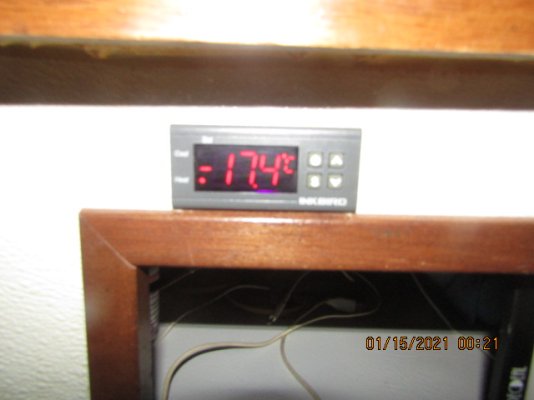jungpeter
Guru
Hi FF,
Well, on my Tolly 48, the "self draining cockpit" is aft of the aft cabin, a loooonnnnggg way from the galley. So, exit the galley, hike down the side deck into the cockpit, just to pull out the ingredients for a sandwich, only to lug them back to the galley? Nah. Not so easy.
And, I believe that even if your galley is above the waterline, "...a well that can drain overboard" does NOT satisfy ABYC standards. If I recall, the words are something like "...A propane refrigerator must be placed DIRECTLY against an exterior bulkhead." And thus highly unlikely to pass scrutiny from any competent marine surveyor, and thus equally unlikely to survive an insurance claim. Not to mention being stupid silly to save a few $$ in search of efficiency with disregard to safety.
There's a reason you've had 100% negative pushback from those of us that haven't' used propane refrigeration aboard. There are few (any?) that choose to compromise simple and affordable (and safe!) marine refrigeration units in a search for those self-same few $$ in a custom build.
Censorship? Nope, a viable, knowledgeable, difference of opinion. Your boat, your choice. Ditto mine.
Regards,
Pete
Code:
The install can be easy , just stick in a self draining cockpit or if above the WL build a well that can drain overboard and vent it.Well, on my Tolly 48, the "self draining cockpit" is aft of the aft cabin, a loooonnnnggg way from the galley. So, exit the galley, hike down the side deck into the cockpit, just to pull out the ingredients for a sandwich, only to lug them back to the galley? Nah. Not so easy.
And, I believe that even if your galley is above the waterline, "...a well that can drain overboard" does NOT satisfy ABYC standards. If I recall, the words are something like "...A propane refrigerator must be placed DIRECTLY against an exterior bulkhead." And thus highly unlikely to pass scrutiny from any competent marine surveyor, and thus equally unlikely to survive an insurance claim. Not to mention being stupid silly to save a few $$ in search of efficiency with disregard to safety.
There's a reason you've had 100% negative pushback from those of us that haven't' used propane refrigeration aboard. There are few (any?) that choose to compromise simple and affordable (and safe!) marine refrigeration units in a search for those self-same few $$ in a custom build.
Censorship? Nope, a viable, knowledgeable, difference of opinion. Your boat, your choice. Ditto mine.
Regards,
Pete


